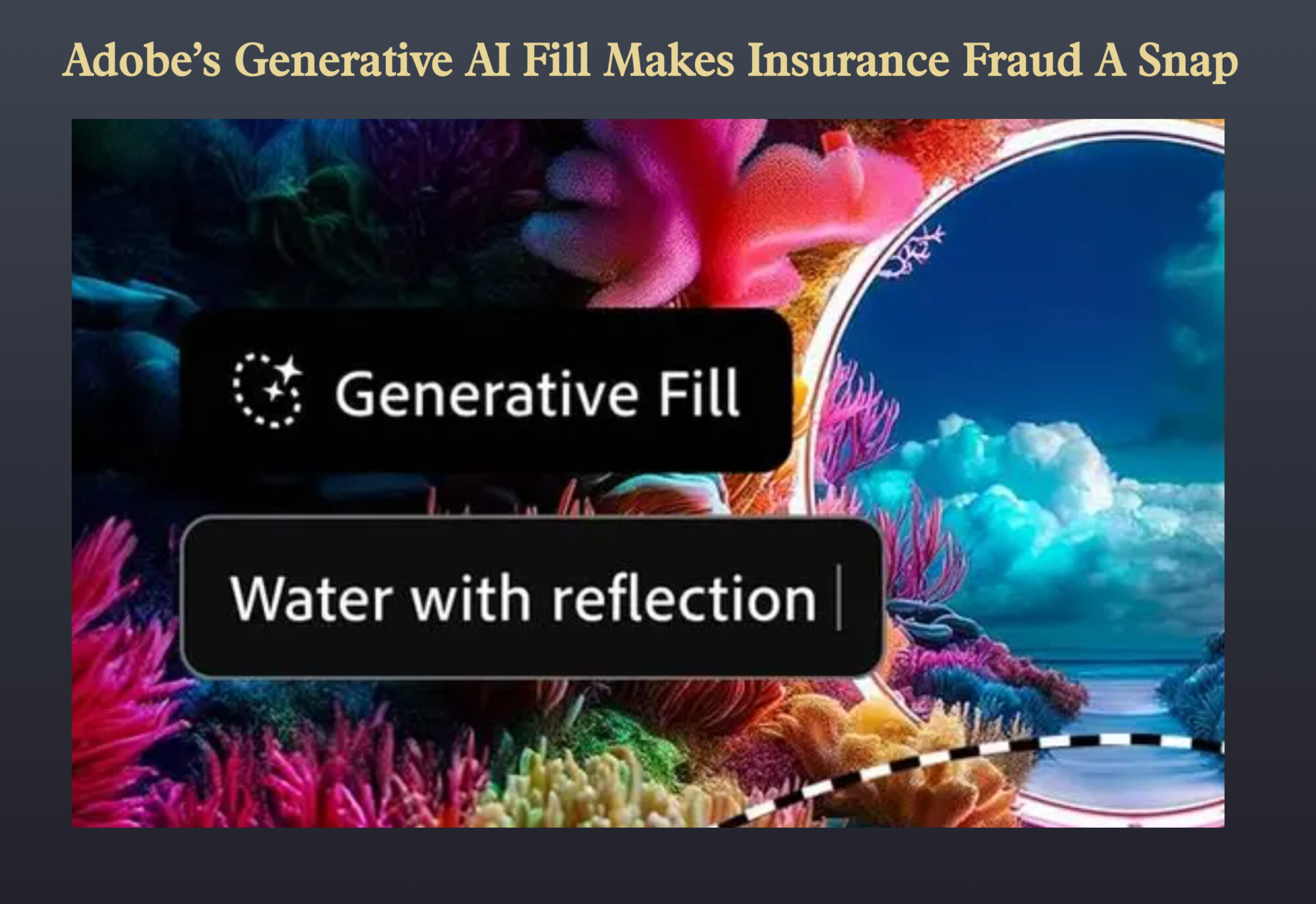Social Media lit up this week as ChatGPT launched a new image creation tool that flawlessly created fake receipts and manipulated photos to inflict fake damage on cars. But did you know, these AI tools have been used by scammers for at least the last 18 months.
Allianz UK reported a 300% increase in AI-related insurance fraud last year, driven by criminals using off the shelf tools like Adobe Photoshop.
Adobe Photoshop released “Generative AI Fill” in September 2023, and scammers realized it was an easy way to forge images to boost insurance claims. Now, every scammer can access this powerful technology, and it requires near-zero experience using Photoshop.

The Rise of Shallow Fakes And Fake Damage
Called “shallow fakes” – AI-altered images used to create false claims – are becoming a major concern for insurers and consumers alike. These images can be used to exaggerate damages, fake accidents, or create fictitious incidents.
According to The Guardian, “a surge in fraud cases in which photos are manipulated to show fake car crash damage is alarming insurers and helping to push motor insurance costs up to record levels.”
For example, scammers have been caught using AI to doctor photos for fraudulent car insurance claims, often adding fake damage from an accident that never happened.
One insurer, Allianz, said incidents where apps were used to distort real-life images, videos, and documents increased by 300% between 2021-22 and 2022-23, and it added that this had “all the signs of becoming the latest big scam to hit the insurance industry.”

Allianz reported an incident where a fraudulent claim was filed. As part of the claim, an image was manipulated with AI tools to make it look like the van’s bumper was cracked. He allegedly submitted the photo and a $1,000 forged invoice to the insurance company.
Ridiculously Easy To Fake Damage With Adobe Photoshop New AI Tools
So, how easy is it to fake an insurance claim? I decided to try out Photoshop’s Generative AI capability on a photo of a new car. Could the AI create a realistic dented bumper that could be used to submit a claim?
Surprisingly, it took me less than one minute to damage a car bumper. If I submitted this picture with a phony invoice or, better yet, was in cahoots with a sketchy body shop, the picture might do the trick.
Watch this demo. ?
Scammers Can Boost Property Claims Using Adobe Photoshop Generative Fill Tools
And it is not just limited to auto fraud claims, property claims are being doctored as well often involving placing expensive items in the home that were never purchased by the homeowner.
From artwork to expensive rugs and home decor, a scammer can use Photoshop’s artificial intelligence to add these items to insurance claims as evidence of losses.
In the following video, I demonstrate how easy it is to manipulate a photo with a realistic, expensive gold vase in the coffee table. The resulting image could realistically boost an insurance claim by several hundred dollars.
Making Fake Photos With AI For Insurance Claims
Lars Daniels provides a compelling overview of how AI creates pre-condition photos using Adobe Photoshop. In his demo, he shows how fraudsters can use technology to the extreme, boosting claims by thousands of dollars.
Insurance Companies Resorting To Anti-Fraud Technologies To Counter Deepfake AI
For their part, Allianz has partnered with Clearspeed, an AI-enabled voice analytics provider, to help detect fraud and speed up the processing of genuine customer claims. Clearspeed’s technology can identify potential fraudsters that may have previously gone undetected.




